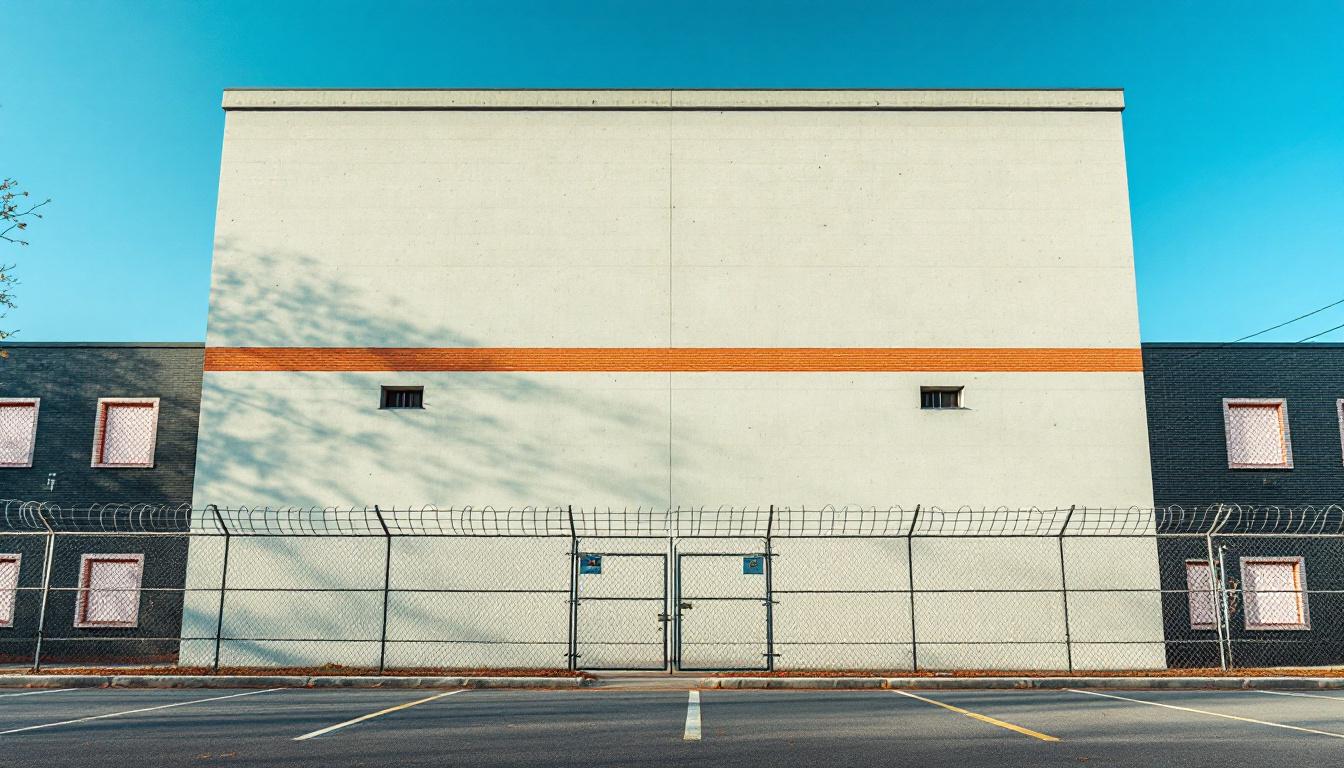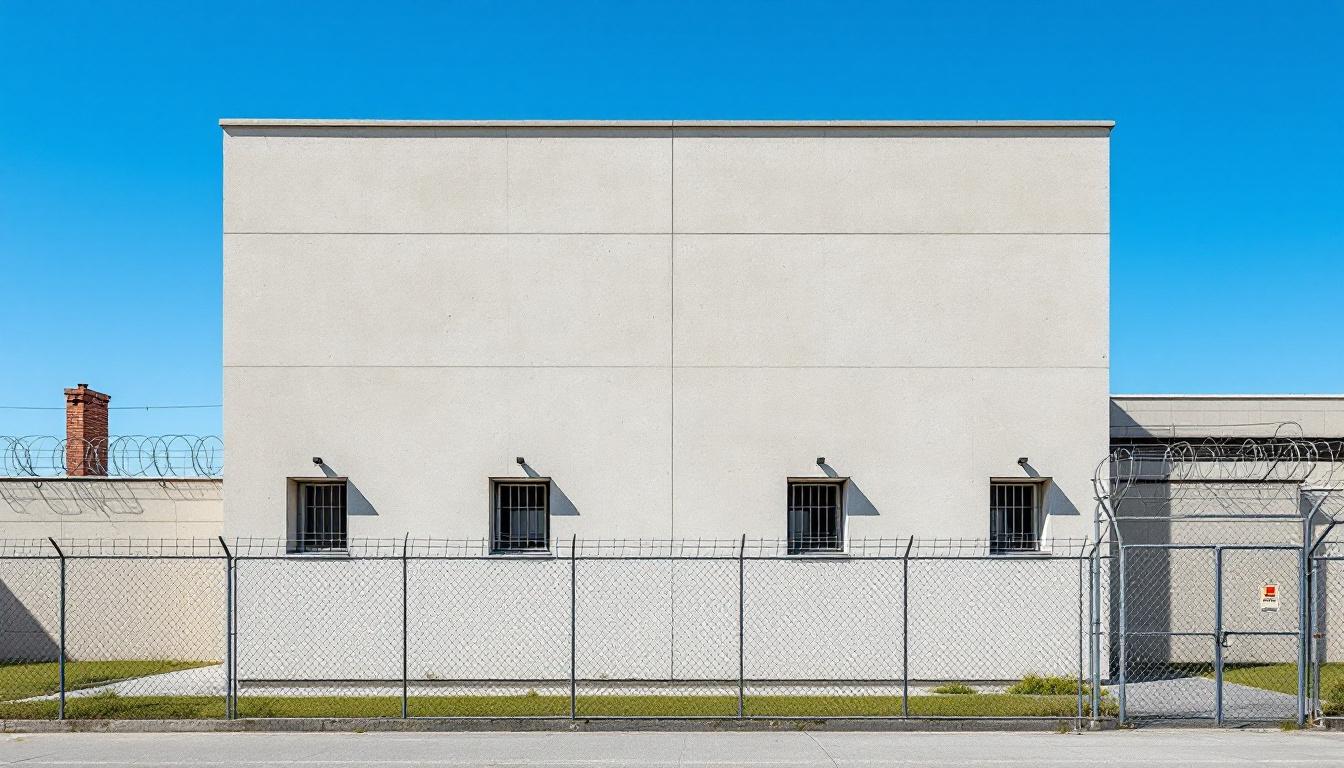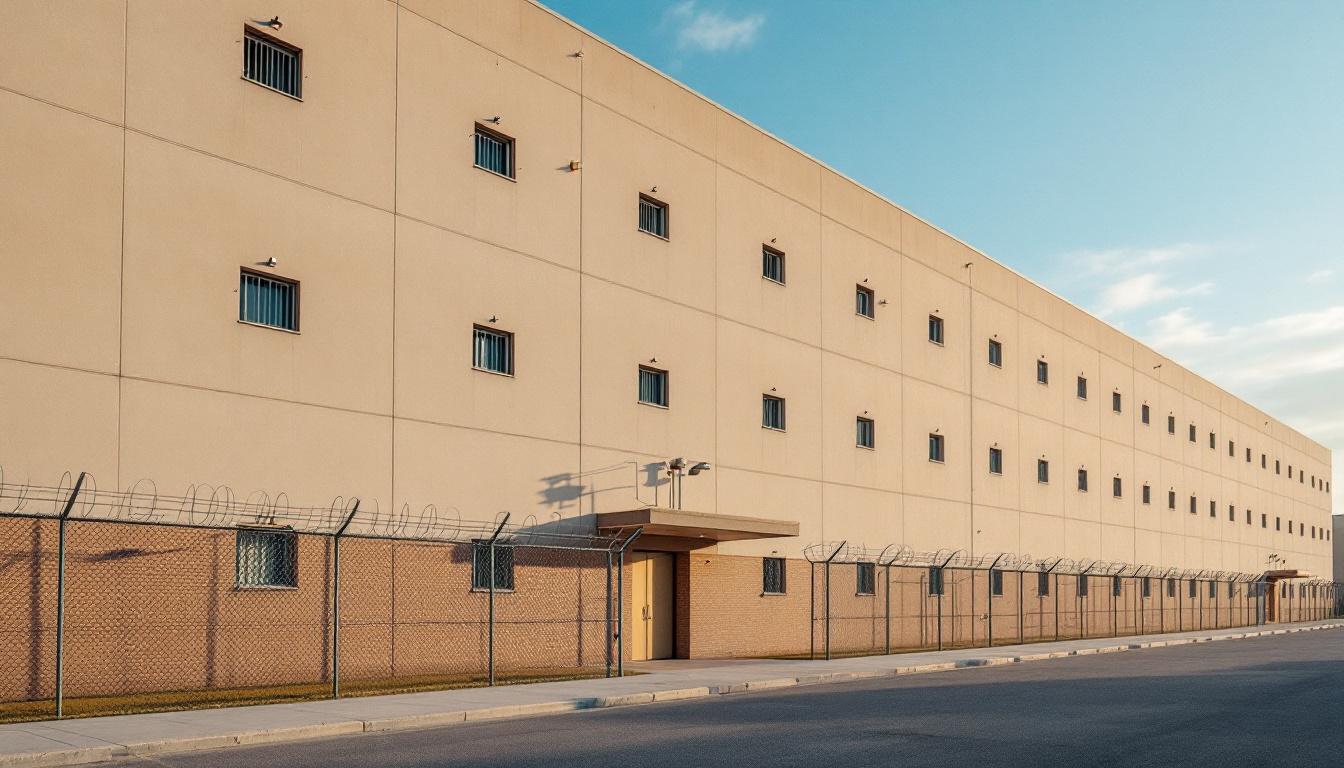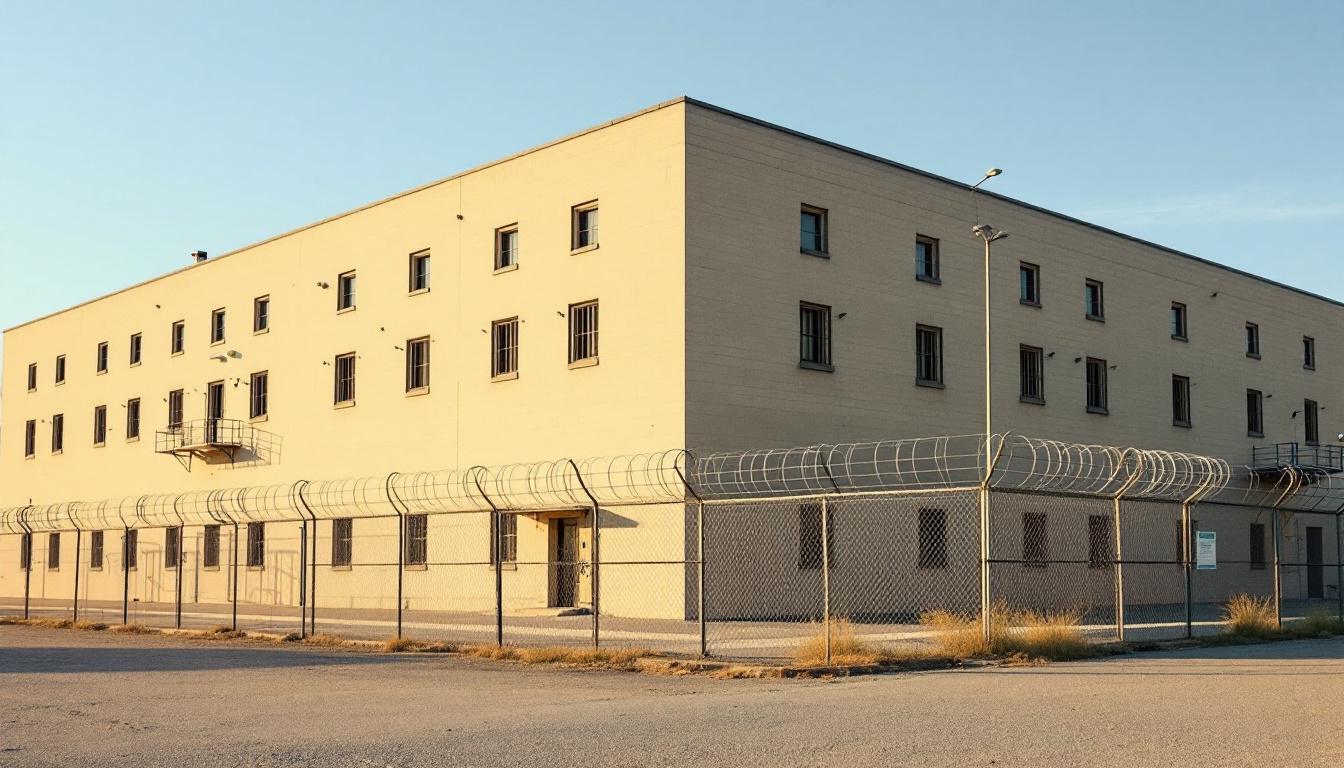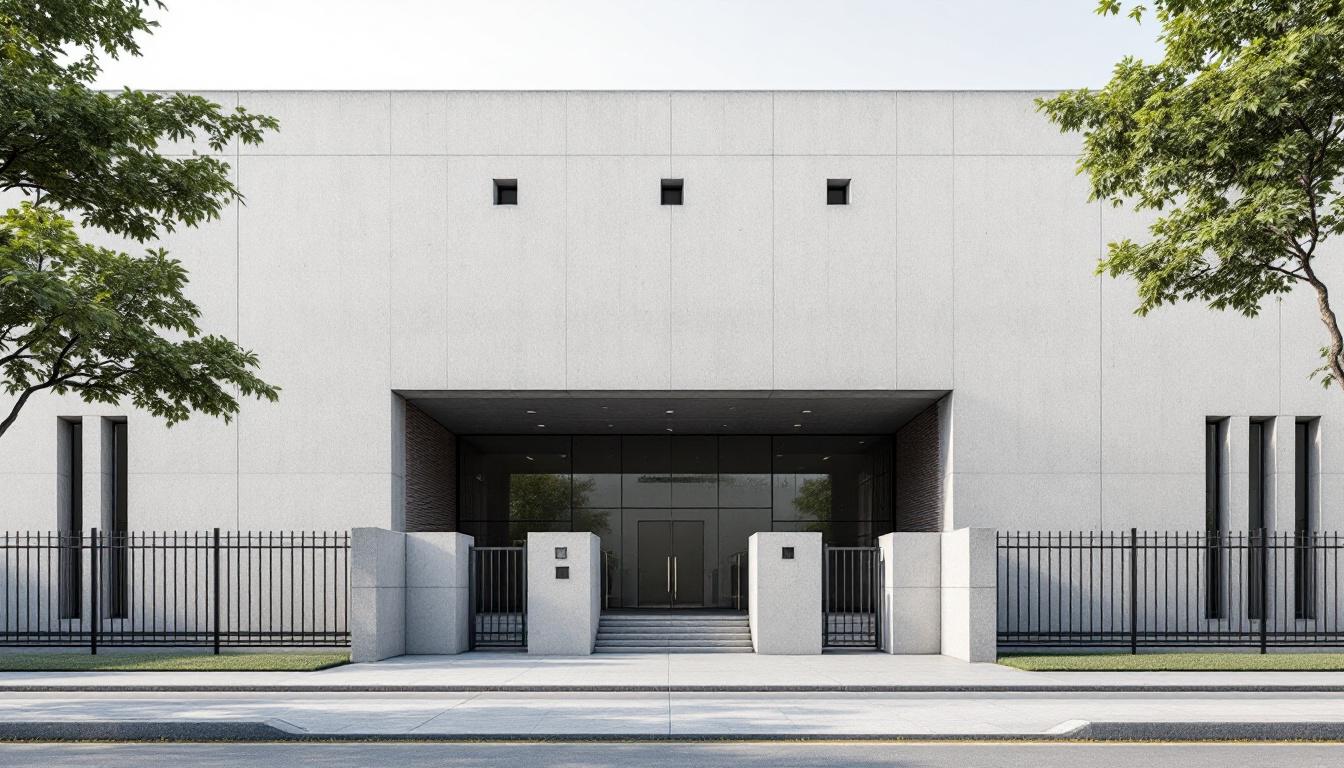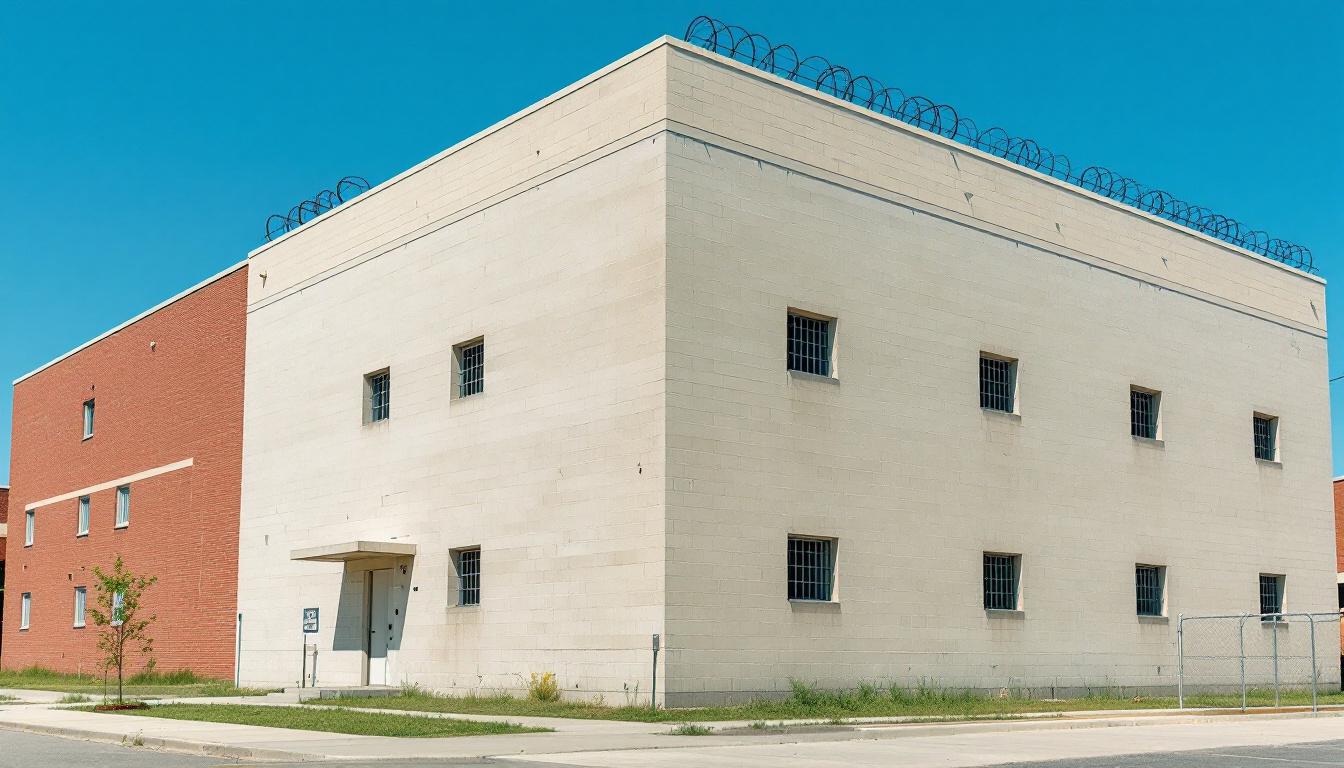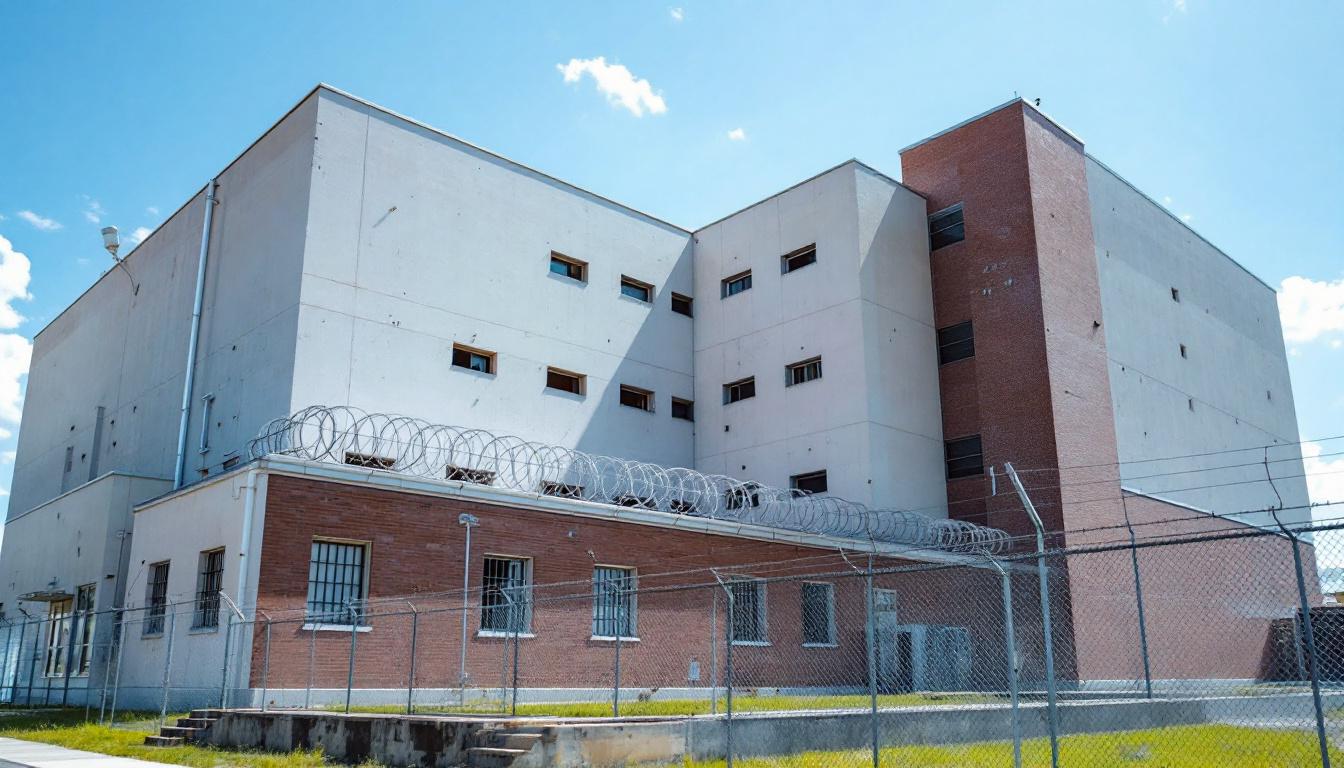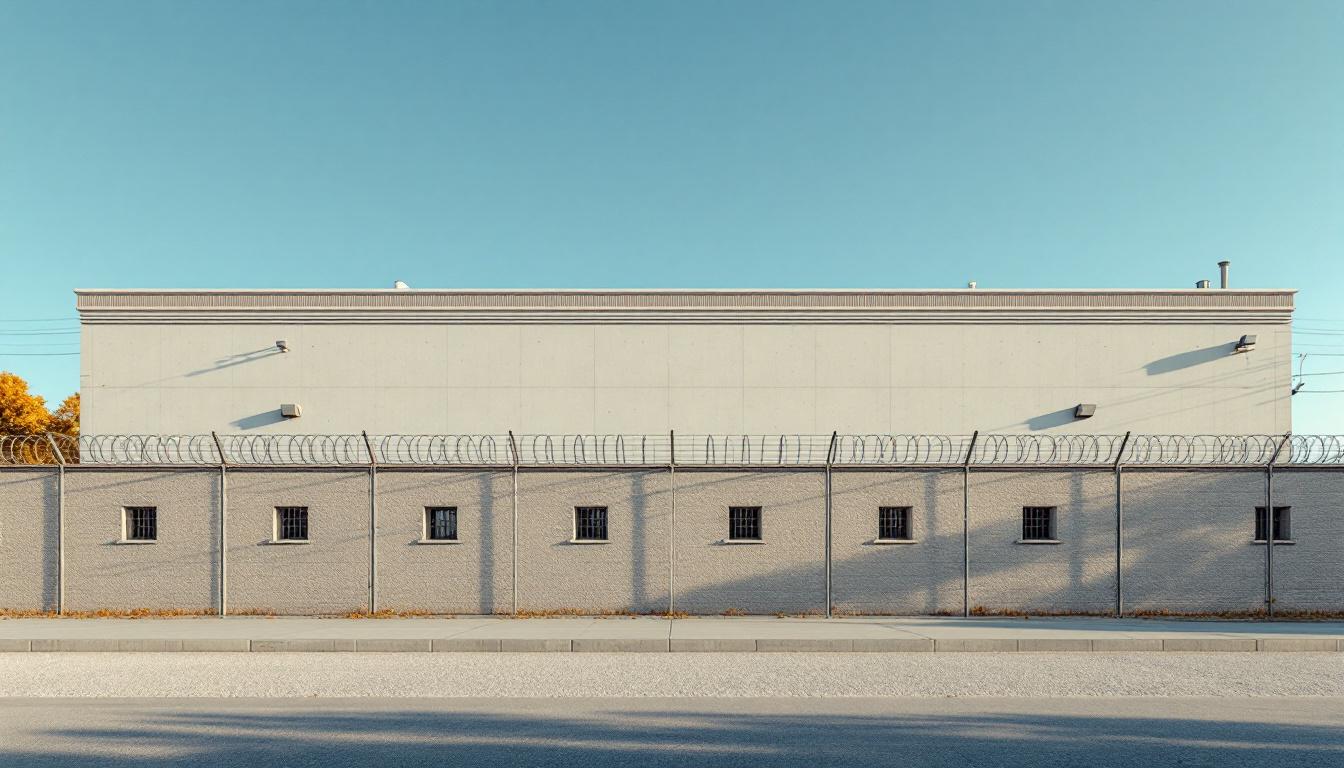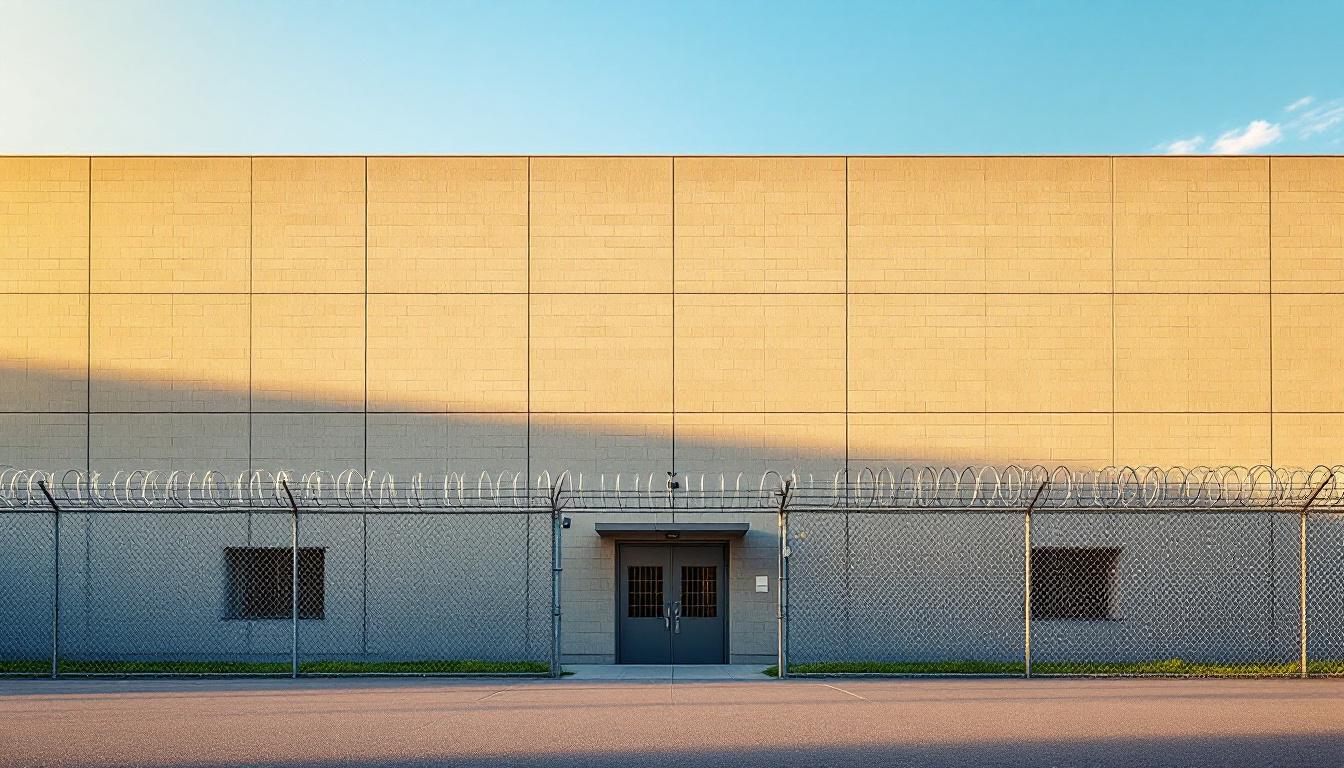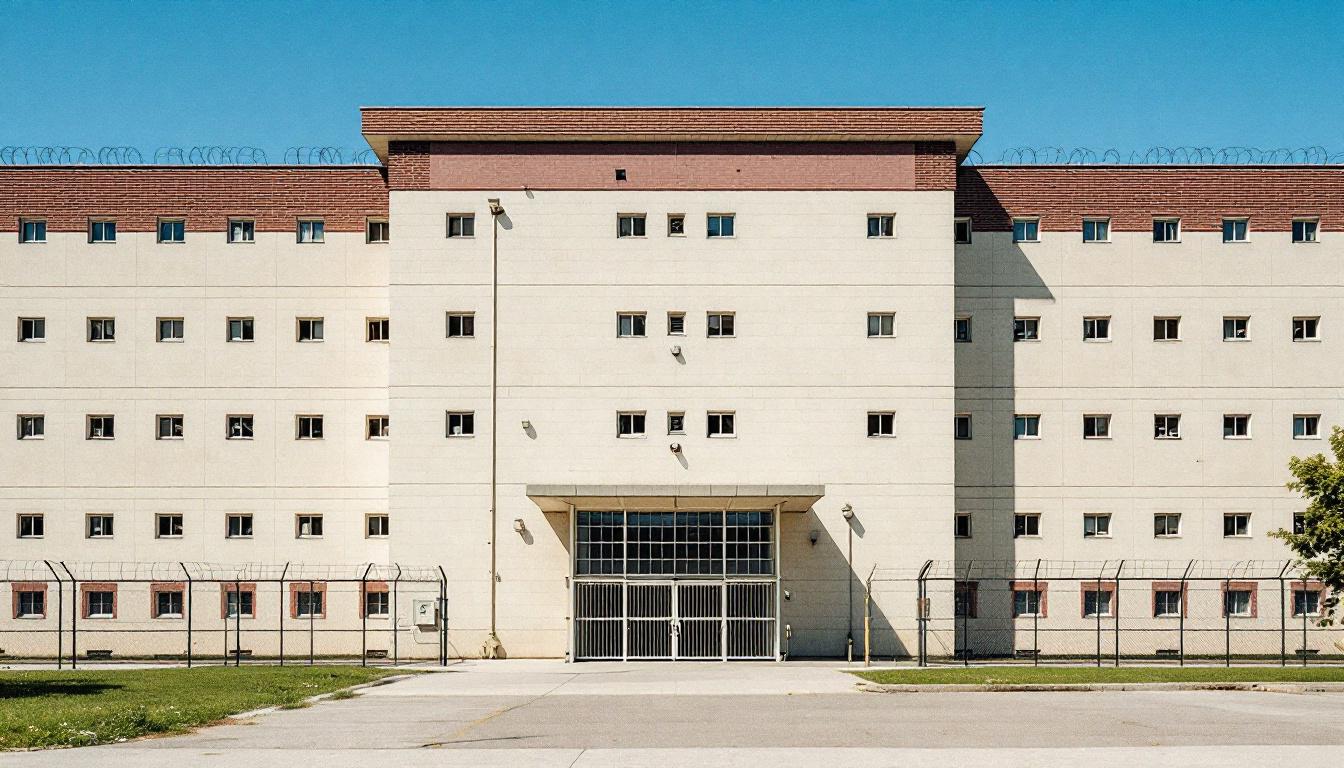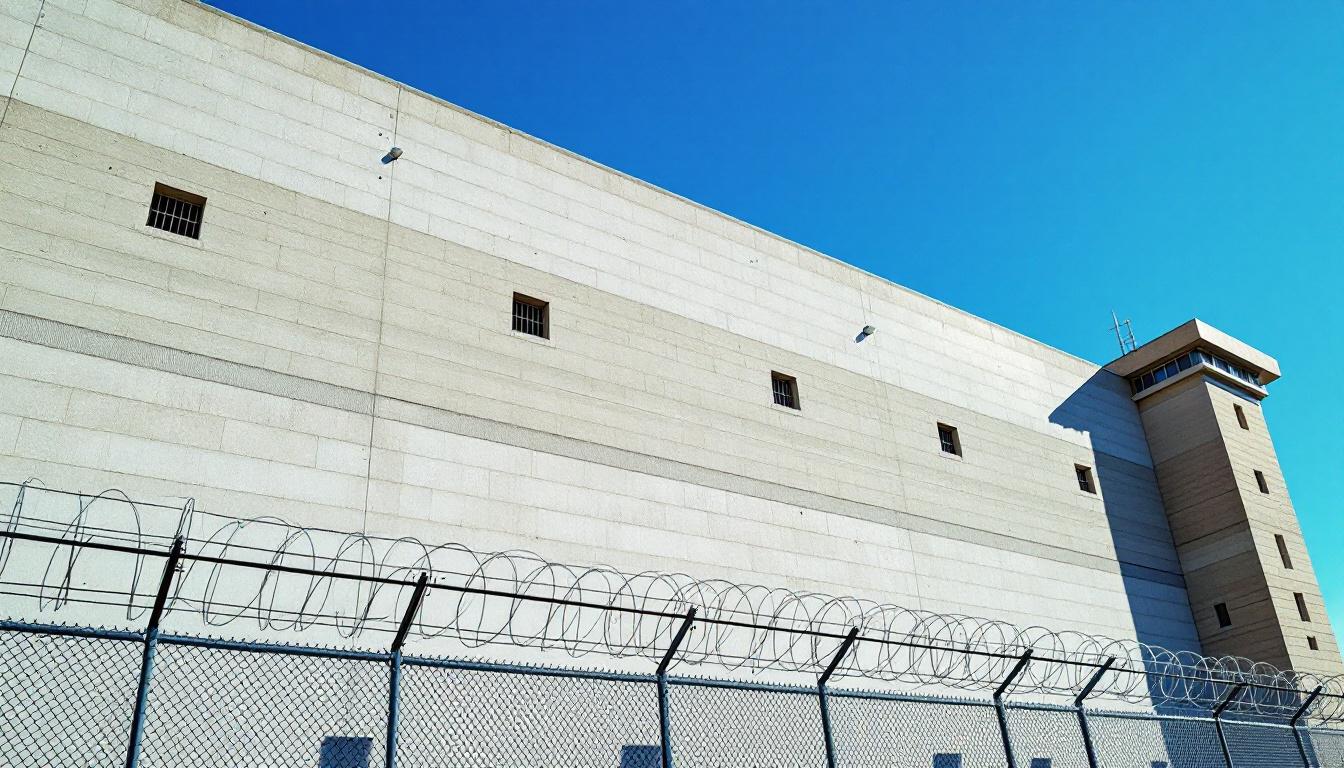
Quick Navigation
How to contact an inmate at Joliet Treatment Center Illinois Youth Center
This comprehensive guide will walk you through how to connect with an inmate at Joliet Treatment Center Illinois Youth Center. Follow the steps below to find an inmate and send letters and photos:
- Search for the inmate using our search tool below
- Create your account or log in to Penmate
- Write your message (up to 6,000 characters)
- Send instantly - inmates receive printed copies daily
Find an Inmate
Search for an inmate to start communicating today
Tip: You can search by first name, last name, or inmate ID number
To contact a person at Joliet Treatment Center Illinois Youth Center start by searching for the person on the facility website. Perform a search by following these steps:
- Step 1: Enter their first name and last name into the search form and click "Search"
- Step 2: Locate their inmate record
- Step 3: Write down their Inmate ID and any housing information provided
Important! Be sure to enter the person's full name. Nicknames should not be used.
How to Send Messages to Inmates

You can use your phone or computer to send emails, letters, and photos to an inmate. Messages are sent electronically to inmate tablets or kiosks at the facility. If you would like to send a message, start by searching for an inmate at Joliet Treatment Center Illinois Youth Center.
Sending Photos and Postcards

A great way to send love and support to a loved one at Joliet Treatment Center Illinois Youth Center is to send photos and postcards. It only takes a few minutes to send photos from your phone and it makes a huge difference. You can also mail postcards with words of support and inspiration, or design your own postcard for special moments like birthdays and holidays.
Important! Be sure not to send any explicit photos or they may not be approved by the facility. You can also use a photo printing app like Penmate to make sure your photos are printed at the correct size (4x6 or 3x5) and are mailed according to the rules and regulations of Joliet Treatment Center Illinois Youth Center.
Frequently asked questions about Joliet Treatment Center Illinois Youth Center
-
How long does it take to deliver a message?
If you're sending an email message your letter is usually delivered within 24-48 hours. For messages sent via mail you should expect delivery within 3-7 days. All messages will need be approved by Joliet Treatment Center Illinois Youth Center.
-
How much does it cost to send a message to Joliet Treatment Center Illinois Youth Center?
You can send a message free using your phone or mail a message via USPS for the price of a $0.60 stamp and envelope. You can also purchase credits or e-stamps from services starting at $1.99.
-
What services can I use to contact an inmate at Joliet Treatment Center Illinois Youth Center?
Penmate
You can use Penmate to send letters and photos to an inmate from your phone. It's an easy way to stay in touch during your loved one's incarceration. Use the inmate locator to find an inmate's location and contact information, then you can send messages within a few minutes.
Securus messaging
Securus may be another option for communicating with an inmate at Joliet Treatment Center Illinois Youth Center. You can create a friends and family account and purchase credits to send messages. All messages will be reviewed and must be approved by the facility.
JPay
Some county jails and state prisons may support sending messages with JPay. You must register an account with the system, find your loved one, and purchase stamps to send messages. For some locations you can also attach photos.
Smart Jail Mail
You may also check if Smart Jail Mail is available at Joliet Treatment Center Illinois Youth Center. Smart Jail Mail is operated by Smart Communications and has contracted with some state and county jails. After purchasing credits, your messages and photos are sent to the facility, printed out, and then handed out to your loved one.
-
What is the mailing address of Joliet Treatment Center Illinois Youth Center?
Mailing address:
Joliet Treatment Center Illinois Youth Center
2848 McDonough St
Joliet, IL 60431
Phone: (815) 730-4400Business hours:
- Monday: 9:00 AM – 8:00 PM
- Tuesday: 9:00 AM – 8:00 PM
- Wednesday: 9:00 AM – 8:00 PM
- Thursday: 9:00 AM – 8:00 PM
- Friday: 9:00 AM – 8:00 PM
- Saturday: 9:00 AM – 8:00 PM
- Sunday: 9:00 AM – 8:00 PM
-
What are the visiting hours at Joliet Treatment Center Illinois Youth Center?
Visiting hours at Joliet Treatment Center Illinois Youth Center vary by housing unit and security level. Generally, visits are scheduled on weekends and holidays, with some facilities offering weekday visits. Contact the facility directly at (815) 730-4400 or check their website for the current visiting schedule. Visits typically last 30-60 minutes and must be scheduled in advance.
-
What items are prohibited when sending mail to Joliet Treatment Center Illinois Youth Center?
Prohibited items typically include: cash, personal checks, stamps, stickers, glitter, glue, tape, staples, paperclips, polaroid photos, musical or blank greeting cards, hardcover books, magazines with staples, and any items containing metal or electronics. Only send letters on plain white paper with blue or black ink. Photos must be printed on regular photo paper (no Polaroids). Always check with Joliet Treatment Center Illinois Youth Center for their specific mail policies.
-
How do I send money to an inmate at Joliet Treatment Center Illinois Youth Center?
You can send money to an inmate at Joliet Treatment Center Illinois Youth Center through several methods: 1) Online using JPay, Access Corrections, or the facility's approved vendor, 2) Money orders mailed directly to the facility with the inmate's name and ID number, 3) Kiosks located in the facility lobby, or 4) Over the phone using a credit or debit card. Fees vary by method, typically ranging from $2.95 to $11.95 per transaction.
-
Can I schedule a video visit with an inmate at Joliet Treatment Center Illinois Youth Center?
Many facilities now offer video visitation as an alternative to in-person visits. At Joliet Treatment Center Illinois Youth Center, video visits may be available through services like Penmate, Securus Video Connect, GTL, or ICSolutions. Video visits typically cost $10-20 for 20-30 minutes and must be scheduled in advance. You'll need a computer or smartphone with a camera and reliable internet connection. Contact the facility for their specific video visitation policies and approved vendors.
-
What identification do I need to visit an inmate at Joliet Treatment Center Illinois Youth Center?
All visitors must present valid government-issued photo identification such as a driver's license, state ID, passport, or military ID. Minors must be accompanied by a parent or legal guardian who can provide the minor's birth certificate. Some facilities require visitors to be on the inmate's approved visitation list, which may require a background check. Contact Joliet Treatment Center Illinois Youth Center for specific ID requirements and visitor approval procedures.
-
How can I find out an inmate's release date?
To find an inmate's release date at Joliet Treatment Center Illinois Youth Center, you can: 1) Use the online inmate search tool if available, 2) Call the facility's records department, 3) Contact the inmate's case manager or counselor, or 4) Have the inmate provide this information during a call or visit. For privacy reasons, some facilities only release this information to immediate family members.
Facility Overview
Contact Information
Joliet Treatment Center Illinois Youth Center2848 McDonough St
Joliet, IL 60431
Phone: (815) 730-4400

About Joliet Treatment Center Illinois Youth Center
Found in Joliet, Illinois, the Joliet Treatment Center operates as a specialized multi-disciplinary treatment facility within the Illinois Department of Corrections system. This multi-security facility, which opened in 2017, serves convicted adult male felons with severe mental illness, providing comprehensive care for high-risk, high-need individuals. The facility’s comprehensive stepdown structured format supports the gradual transition of individuals back to general population settings, emphasizing therapeutic intervention and behavioral modification.
The treatment center spans 55 acres with 50 acres enclosed by security fencing, encompassing 20 buildings across more than 222,000 square feet of space. With an operational capacity of many individuals, the facility maintains specialized housing units including two behavior modification units, four residential treatment units, and a minimum-security unit. Educational programming supports rehabilitation efforts through Adult Basic Education (ABE) and Advanced Adult Education opportunities, providing foundational academic skills that may enhance reintegration prospects.
Located at 2848 West McDonough in Joliet, the facility typically offers comprehensive mental health treatment services designed for individuals requiring intensive therapeutic intervention. The center’s multi-security classification allows for appropriate housing based on individual risk assessments and treatment needs. Visitation services include both traditional in-person visits and video visitation options available seven days a week, supporting family connections that often play a crucial role in successful rehabilitation and community reintegration.
Programs & Services
Mental health treatment forms the cornerstone of services at Joliet Treatment Center, which operates as a specialized multi-disciplinary treatment facility for adult male residents with severe mental illness. The facility’s structured stepdown program is designed to help high-risk, high-need individuals transition back to general population through comprehensive therapeutic interventions. With dedicated behavior modification units and residential treatment units, the center provides intensive psychiatric care and behavioral support tailored to each resident’s treatment needs.
Educational opportunities include Adult Basic Education (ABE) and Advanced Adult Education programs, helping residents build fundamental academic skills and work toward educational credentials. The facility may also offer vocational training programs, life skills development, and pre-release preparation services typical of Illinois correctional facilities. Given its specialized focus on mental health treatment, residents likely have access to individual and group counseling, psychiatric services, medication management, and crisis intervention support.
The center’s multi-security design allows for a graduated treatment approach, with programs potentially including substance abuse counseling, anger management, cognitive behavioral therapy, and social skills training. Support services may encompass medical care, dental services, library access, and recreational activities designed to promote mental wellness and successful community reintegration. The facility’s emphasis on evidence-based treatment practices aims to address the complex needs of residents while preparing them for eventual return to less restrictive housing environments.
Daily Life & Visitation
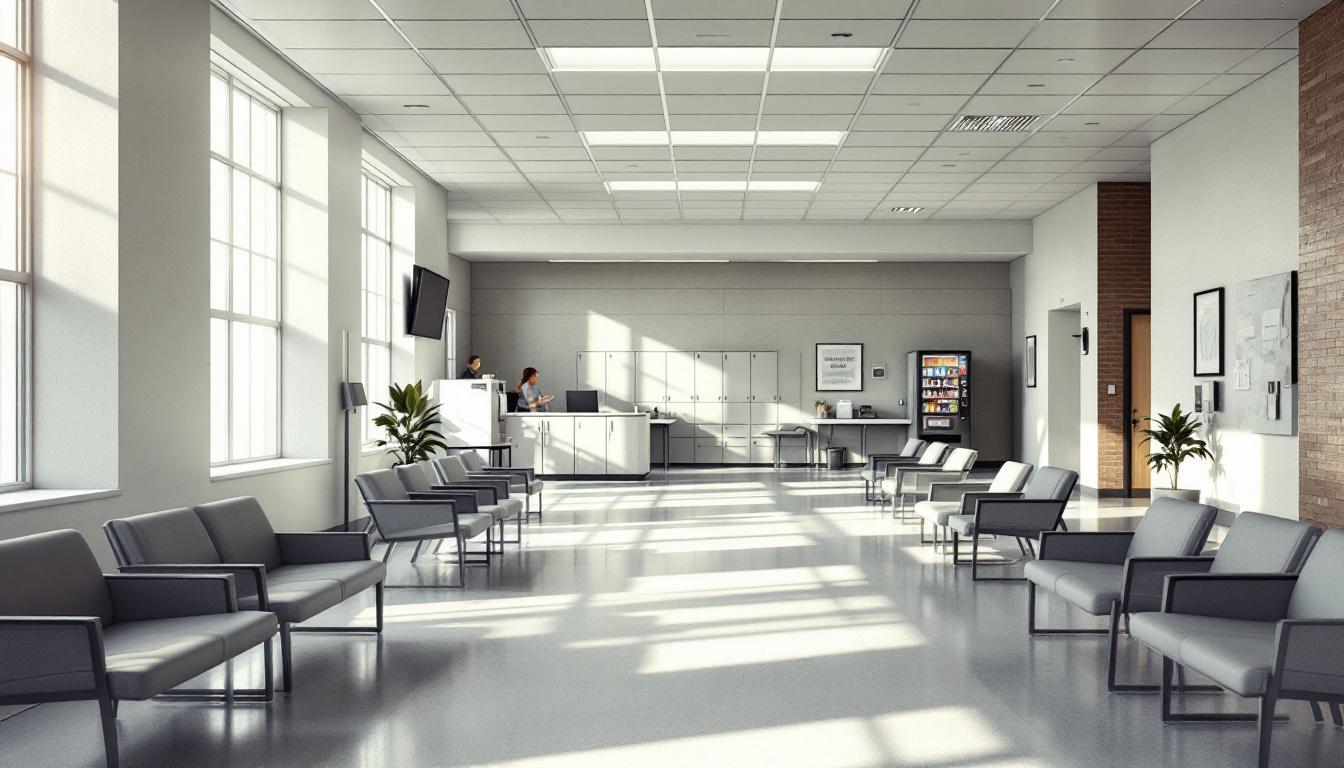
Residents at Joliet Treatment Center begin each day within a structured therapeutic environment designed specifically for adult males with severe mental illness. The facility’s multi-disciplinary approach means that daily schedules typically incorporate both treatment sessions and educational opportunities, with programs like Adult Basic Education (ABE) providing academic support alongside mental health services. Given the center’s multi-security classification and capacity for many individuals, residents may experience different levels of structure depending on their security designation and treatment progress through the stepdown program format.
Family connections remain an important part of the treatment process, with video visitation available seven days a week from 9:00 AM to 8:00 PM. Visitors must sign up in advance and are encouraged to log on 15 minutes before their scheduled session. The facility also utilizes ICSolutions technology services for electronic messaging through CorrLinks, allowing residents to maintain regular contact with approved family members and friends. These communication options help support the therapeutic goals while residents work toward eventual return to general population settings.
The center’s specialized focus on high-risk, high-need individuals means that daily programming likely emphasizes therapeutic interventions, medication management, and behavioral modification activities. With its two behavior modification units and four residential treatment units spread across 20 buildings on the 55-acre site, residents may participate in group therapy sessions, individual counseling, and structured recreational activities. The facility’s design supports the treatment mission while maintaining appropriate security measures, with 50 acres enclosed by fencing to ensure safety for both residents and staff.
Ready to Connect?
Start communicating with your loved one today
Search for an Inmate
